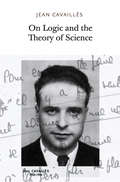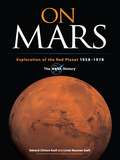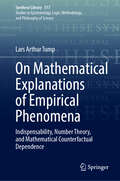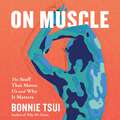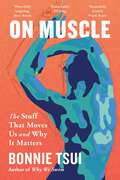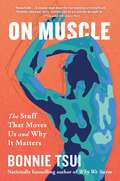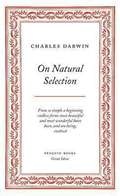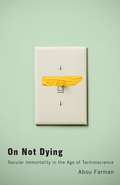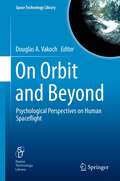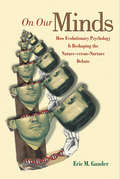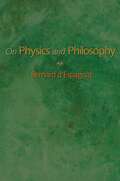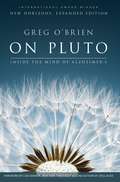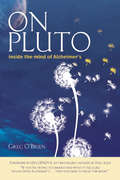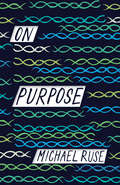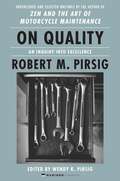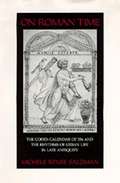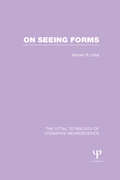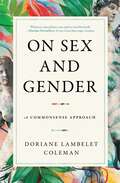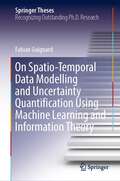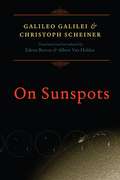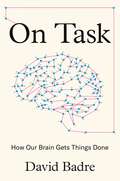- Table View
- List View
On Logic and the Theory of Science
by Jean CavaillesA new translation of the final work of French philosopher Jean Cavaillès.In this short, dense essay, Jean Cavaillès evaluates philosophical efforts to determine the origin—logical or ontological—of scientific thought, arguing that, rather than seeking to found science in original intentional acts, a priori meanings, or foundational logical relations, any adequate theory must involve a history of the concept.Cavaillès insists on a historical epistemology that is conceptual rather than phenomenological, and a logic that is dialectical rather than transcendental. His famous call (cited by Foucault) to abandon "a philosophy of consciousness" for "a philosophy of the concept" was crucial in displacing the focus of philosophical enquiry from aprioristic foundations toward structural historical shifts in the conceptual fabric.This new translation of Cavaillès's final work, written in 1942 during his imprisonment for Resistance activities, presents an opportunity to reencounter an original and lucid thinker. Cavaillès's subtle adjudication between positivistic claims that science has no need of philosophy, and philosophers' obstinate disregard for actual scientific events, speaks to a dilemma that remains pertinent for us today. His affirmation of the authority of scientific thinking combined with his commitment to conceptual creation yields a radical defense of the freedom of thought and the possibility of the new.
On Mars: Exploration of the Red Planet, 1958-1978--The NASA History (Dover Books on Astronomy)
by Paul Dickson Edward Clinton Ezell Linda Neuman EzellAlthough it was only designed for a ninety-day surface mission, the Viking 1 lander ultimately transmitted science messages to Earth for seven years. This authoritative history chronicles the remarkable achievements of the Viking program during its first three decades. Commissioned by NASA, it recounts the events surrounding the first planetary landing on Earth's closest neighbor and the first on-site search for evidence of extraterrestrial life. It also portrays a human drama in which thousands of professionals from government, industry, and academia joined together to accomplish the seemingly impossible.This history begins with a survey of the qualities that make the surface and atmosphere of Mars prime targets for scientific investigation. A retrospective of NASA's Mariner program follows, detailing the series of robotic interplanetary probes that led to the initiation of the Viking program in 1968. The authors trace the ensuing technological developments, including the first lander vehicles and orbiter. They also profile the cooperation of managerial, technical, and scientific teams during the mission's data-gathering and analysis phases. The final chapters outline the scientific results of the Viking investigations, examine some of the unresolved questions, and consider possible future explorations. Dozens of photos taken by Viking cameras illuminate the text.
On Mathematical Explanations of Empirical Phenomena: Indispensability, Number Theory, and Mathematical Counterfactual Dependence (Synthese Library #517)
by Lars Arthur TumpThis book addresses contemporary issues in the philosophy of mathematics that deal with the role of mathematics in explanations of empirical phenomena. It brings together various debates, such as on indispensability, number theory, abstraction principles, and counterpossibles, which turn out to be highly relevant for evaluating the role of the mathematics in question. The book consists of two parts and has a general introduction of the broader context in which the discussions take place. The first part focuses on the possibility of extracting an argument for mathematical realism in relation to the explanatory indispensability argument, and shows that circularity looms unless a controversial abstraction principle is assumed. It also offers an alternative non-mathematical explanation that makes use of relative interpretation. The second part focuses on the possibility of bringing out the explanatory role of mathematics counterfactually, and shows that, due to the necessary nature of mathematics, any proposal should take into account discussions on the knowledge and the structure of numbers. As a whole, this book is of great use to academic research in the field of philosophy of mathematics.
On Muscle: The Stuff That Moves Us and Why It Matters
by Bonnie Tsui'Remarkable . . . A singular book about the true meanings of strength and flexibility, about our ability to define who we are and who we might be' Ed Yong, New York Times bestselling author of An Immense World and I Contain MultitudesFrom the bestselling author of Why We Swim comes a mind-expanding exploration of muscle that will change the way you think about how we move and why it matters.Cardiac, smooth, skeletal-these three different types of muscle in our bodies make our hearts beat; push food through our intestines, blood through our vessels, attach to our bones and help us move. Individually, they do different things. Collectively, they drive us through our days.Join athlete and writer Bonnie Tsui as she jumps headfirst into the intriguing world of muscle from the five angles of strength, form, action, flexibility and endurance. Tsui introduces us to the first female weightlifter to pick up the famed Scottish Dinnie Stones, then takes us on a 50-mile run through the Nevada desert that follows the path of escape from a Native boarding school, giving the concept of endurance new meaning. She travels to Oslo, where cutting-edge research reveals how muscles help us bounce back after injury and illness, an important aspect of longevity. She jumps into the action with a historic Double Dutch club in Washington, D.C., to explain anew what Charles Darwin meant by the brain-body connection.On Muscle is a powerful reminder that using our muscles promote longevity, joy, and, most important, the feeling that we can do anything.
On Muscle: The Stuff That Moves Us and Why It Matters
by Bonnie Tsui'Remarkable . . . A singular book about the true meanings of strength and flexibility, about our ability to define who we are and who we might be' Ed Yong, New York Times bestselling author of An Immense World and I Contain MultitudesFrom the bestselling author of Why We Swim comes a mind-expanding exploration of muscle that will change the way you think about how we move and why it matters.Cardiac, smooth, skeletal-these three different types of muscle in our bodies make our hearts beat; push food through our intestines, blood through our vessels, attach to our bones and help us move. Individually, they do different things. Collectively, they drive us through our days.Join athlete and writer Bonnie Tsui as she jumps headfirst into the intriguing world of muscle from the five angles of strength, form, action, flexibility and endurance. Tsui introduces us to the first female weightlifter to pick up the famed Scottish Dinnie Stones, then takes us on a 50-mile run through the Nevada desert that follows the path of escape from a Native boarding school, giving the concept of endurance new meaning. She travels to Oslo, where cutting-edge research reveals how muscles help us bounce back after injury and illness, an important aspect of longevity. She jumps into the action with a historic Double Dutch club in Washington, D.C., to explain anew what Charles Darwin meant by the brain-body connection.On Muscle is a powerful reminder that using our muscles promote longevity, joy, and, most important, the feeling that we can do anything.
On Muscle: The Stuff That Moves Us and Why It Matters
by Bonnie TsuiFrom the bestselling author of Why We Swim comes a mind-expanding exploration of muscle that will change the way you think about what moves us through the world. &“Remarkable . . . A singular book about the true meanings of strength and flexibility, about our ability to define who we are and who we might be.&” —Ed Yong, New York Times bestselling author of An Immense World and I Contain Multitudes In On Muscle, Bonnie Tsui brings her signature blend of science, culture, immersive reporting, and personal narrative to examine not just what muscles are but what they mean to us. Cardiac, smooth, skeletal—these three different types of muscle in our bodies make our hearts beat; push food through our intestines, blood through our vessels, babies out the uterus; attach to our bones and allow for motion. Tsui also traces how muscles have defined beauty—and how they have distorted it—through the ages, and how they play an essential role in our physical and mental health. Tsui introduces us to the first female weightlifter to pick up the famed Scottish Dinnie Stones, then takes us on a 50-mile run through the Nevada desert that follows the path of escape from a Native boarding school—and gives the concept of endurance new meaning. She travels to Oslo, where cutting-edge research reveals how muscles help us bounce back after injury and illness, an important aspect of longevity. She jumps into the action with a historic Double Dutch club in Washington, D.C., to explain anew what Charles Darwin meant by the brain-body connection. Woven throughout are stories of Tsui&’s childhood with her Chinese immigrant artist dad—a black belt in karate—who schools her from a young age in a kind of quirky, in-house Muscle Academy. On Muscle shows us the poetry in the physical, and the surprising ways muscle can reveal what we&’re capable of.
On Natural Selection
by Charles DarwinThroughout history, some books have changed the world. They have transformed the way we see ourselves—and each other. They have inspired debate, dissent, war and revolution. They have enlightened, outraged, provoked and comforted. They have enriched lives—and destroyed them. Now, Penguin brings you the works of the great thinkers, pioneers, radicals and visionaries whose ideas shook civilization, and helped make us who we are. Penguin's Great Ideas series features twelve groundbreaking works by some of history's most prodigious thinkers, and each volume is beautifully packaged with a unique type-drive design that highlights the bookmaker's art. Offering great literature in great packages at great prices, this series is ideal for those readers who want to explore and savor the Great Ideas that have shaped the world. .
On Not Dying: Secular Immortality in the Age of Technoscience
by Abou FarmanAn ethnographic exploration of technoscientific immortality Immortality has long been considered the domain of religion. But immortality projects have gained increasing legitimacy and power in the world of science and technology. With recent rapid advances in biology, nanotechnology, and artificial intelligence, secular immortalists hope for and work toward a future without death.On Not Dying is an anthropological, historical, and philosophical exploration of immortality as a secular and scientific category. Based on an ethnography of immortalist communities—those who believe humans can extend their personal existence indefinitely through technological means—and an examination of other institutions involved at the end of life, Abou Farman argues that secular immortalism is an important site to explore the tensions inherent in secularism: how to accept death but extend life; knowing the future is open but your future is finite; that life has meaning but the universe is meaningless. As secularism denies a soul, an afterlife, and a cosmic purpose, conflicts arise around the relationship of mind and body, individual finitude and the infinity of time and the cosmos, and the purpose of life. Immortalism today, Farman argues, is shaped by these historical and culturally situated tensions. Immortalist projects go beyond extending life, confronting dualism and cosmic alienation by imagining (and producing) informatic selves separate from the biological body but connected to a cosmic unfolding.On Not Dying interrogates the social implications of technoscientific immortalism and raises important political questions. Whose life will be extended? Will these technologies be available to all, or will they reproduce racial and geopolitical hierarchies? As human life on earth is threatened in the Anthropocene, why should life be extended, and what will that prolonged existence look like?
On Orbit and Beyond
by Douglas A. VakochAs we stand poised on the verge of a new era of spaceflight, we must rethink every element, including the human dimension. This book explores some of the contributions of psychology to yesterday's great space race, today's orbiter and International Space Station missions, and tomorrow's journeys beyond Earth's orbit. Early missions into space were typically brief, and crews were small, often drawn from a single nation. As international cooperation in space exploration has increased over the decades, the challenges of communicating across cultural boundaries and dealing with interpersonal conflicts have become all the more important, requiring different coping skills and sensibilities than "the right stuff" expected of early astronauts. As astronauts travel to asteroids or establish a permanent colony on the Moon, with the eventual goal of reaching Mars, the duration of expeditions will increase markedly, as will the psychosocial stresses. Away from their home planet for extended times, future spacefarers will need to be increasingly self-sufficient, while simultaneously dealing with the complexities of heterogeneous, multicultural crews. "On Orbit and Beyond: Psychological Perspectives on Human Spaceflight," the second, considerably expanded edition of "Psychology of Space Exploration: Contemporary Research in Historical Perspective," provides an analysis of these and other challenges facing future space explorers while at the same time presenting new empirical research on topics ranging from simulation studies of commercial spaceflights to the psychological benefits of viewing Earth from space. This second edition includes an all new section exploring the challenges astronauts will encounter as they travel to asteroids, Mars, Saturn, and the stars, requiring an unprecedented level of autonomy. Updated essays discuss the increasingly important role of China in human spaceflight. In addition to examining contemporary psychological research, several of the essays also explicitly address the history of the psychology of space exploration. Leading contributors to the field place the latest theories and empirical findings in historical context by exploring changes in space missions over the past half century, as well as reviewing developments in the psychological sciences during the same period. The essays are innovative in their approaches and conclusions, providing novel insights for behavioral researchers and historians alike.
On Our Minds: How Evolutionary Psychology Is Reshaping the Nature versus Nurture Debate
by Eric M. GanderThere is no question more fundamental to human existence than that posed by the nature-versus-nurture debate. For much of the past century, it was widely believed that there was no essential human nature and that people could be educated or socialized to thrive in almost any imaginable culture. Today, that orthodoxy is being directly and forcefully challenged by a new science of the mind: evolutionary psychology. Like the theory of evolution itself, the implications of evolutionary psychology are provocative and unsettling. Rather than viewing the human mind as a mysterious black box or a blank slate, evolutionary psychologists see it as a physical organ that has evolved to process certain types of information in certain ways that enables us to thrive only in certain types of cultures.In On Our Minds, Eric M. Gander examines all sides of the public debate between evolutionary psychologists and their critics. Paying particularly close attention to the popular science writings of Steven Pinker, Edward O. Wilson, Richard Dawkins, and Stephen Jay Gould, Gander traces the history of the controversy, succinctly summarizes the claims and theories of the evolutionary psychologists, dissects the various arguments deployed by each side, and considers in detail the far-reaching ramifications—social, cultural, and political—of this debate. Gander's lucid and highly readable account concludes that evolutionary psychology now holds the potential to answer our oldest and most profound moral and philosophical questions, fundamentally changing our self–perception as a species.
On Physics and Philosophy
by Bernard d'EspagnatAmong the great ironies of quantum mechanics is not only that its conceptual foundations seem strange even to the physicists who use it, but that philosophers have largely ignored it. Here, Bernard d'Espagnat argues that quantum physics--by casting doubts on once hallowed concepts such as space, material objects, and causality-demands serious reconsideration of most of traditional philosophy. On Physics and Philosophy is an accessible, mathematics-free reflection on the philosophical meaning of the quantum revolution, by one of the world's leading authorities on the subject. D'Espagnat presents an objective account of the main guiding principles of contemporary physics-in particular, quantum mechanics-followed by a look at just what consequences these should imply for philosophical thinking. The author begins by describing recent discoveries in quantum physics such as nonseparability, and explicating the significance of contemporary developments such as decoherence. Then he proceeds to set various philosophical theories of knowledge--such as materialism, realism, Kantism, and neo-Kantism--against the conceptual problems quantum theory raises. His overall conclusion is that while the physical implications of quantum theory suggest that scientific knowledge will never truly describe mind-independent reality, the notion of such an ultimate reality--one we can never access directly or rationally and which he calls "veiled reality"--remains conceptually necessary nonetheless.
On Pluto: Inside The Mind Of Alzheimer's
by Lisa Genova Greg O'BrienThis is a book about living with Alzheimer’s, not dying with it. It is a book about hope, faith, and humor—a prescription far more powerful than the conventional medication available today to fight this disease. Alzheimer’s is the sixth leading cause of death in the US—and the only one of these diseases on the rise. More than 5 million Americans have been diagnosed with Alzheimer’s or a related dementia; about 35 million people worldwide. Greg O’Brien, an award-winning investigative reporter, has been diagnosed with early-onset Alzheimer's and is one of those faceless numbers. Acting on long-term memory and skill coupled with well-developed journalistic grit, O’Brien decided to tackle the disease and his imminent decline by writing frankly about the journey. O’Brien is a master storyteller. His story is naked, wrenching, and soul searching for a generation and their loved ones about to cross the threshold of this death in slow motion. On Pluto: Inside the Mind of Alzheimer’s is a trail-blazing roadmap for a generation—both a “how to” for fighting a disease, and a “how not” to give up!
On Pluto: Inside the Mind of Alzheimer's
by Lisa Genova Greg O'BrienThis is a book about living with Alzheimer’s, not dying with it. It is a book about hope, faith, and humor—a prescription far more powerful than the conventional medication available today to fight this disease. Alzheimer’s is the sixth leading cause of death in the US—and the only one of these diseases on the rise. More than 5 million Americans have been diagnosed with Alzheimer’s or a related dementia; about 35 million people worldwide. Greg O’Brien, an award-winning investigative reporter, has been diagnosed with early-onset Alzheimer's and is one of those faceless numbers. Acting on long-term memory and skill coupled with well-developed journalistic grit, O’Brien decided to tackle the disease and his imminent decline by writing frankly about the journey. O’Brien is a master storyteller. His story is naked, wrenching, and soul searching for a generation and their loved ones about to cross the threshold of this death in slow motion. On Pluto: Inside the Mind of Alzheimer’s is a trail-blazing roadmap for a generation—both a “how to” for fighting a disease, and a “how not” to give up!
On Posthuman War: Computation and Military Violence
by Mike HillTracing war&’s expansion beyond the battlefield to the concept of the human being itself As military and other forms of political violence become the planetary norm, On Posthuman War traces the expansion of war beyond traditional theaters of battle. Drawing on counterinsurgency field manuals, tactical manifestos, data-driven military theory, and asymmetrical-war archives, Mike Hill delineates new &“Areas of Operation&” within a concept of the human being as not only a social and biological entity but also a technical one.Delving into three human-focused disciplines newly turned against humanity, OnPosthuman War reveals how demography, anthropology, and neuroscience have intertwined since 9/11 amid the &“Revolution in Military Affairs.&” Beginning with the author&’s personal experience training with U.S. Marine recruits at Parris Island, Hill gleans insights from realist philosophy, the new materialism, and computational theory to show how the human being, per se, has been reconstituted from neutral citizen to unwitting combatant. As evident in the call for &“bullets, beans, and data,&” whatever can be parted out, counted, and reassembled can become war materiel. Hill shows how visible and invisible wars within identity, community, and cognition shift public-sphere activities, like racial identification, group organization, and even thought itself, in the direction of war. This shift has weaponized social activities against the very notion of society. On Posthuman War delivers insights on the latest war technologies, strategies, and tactics while engaging in questions poised to overturn the foundations of modern political thought.
On Purpose
by Michael RuseA brief, accessible history of the idea of purpose in Western thought, from ancient Greece to the presentCan we live without the idea of purpose? Should we even try to? Kant thought we were stuck with purpose, and even Darwin’s theory of natural selection, which profoundly shook the idea, was unable to kill it. Indeed, teleological explanation—what Aristotle called understanding in terms of “final causes”—seems to be making a comeback today, as both religious proponents of intelligent design and some prominent secular philosophers argue that any explanation of life without the idea of purpose is missing something essential.In On Purpose, Michael Ruse explores the history of the idea of purpose in philosophical, religious, scientific, and historical thought, from ancient Greece to the present. Accessibly written and filled with literary and other examples, the book examines “purpose” thinking in the natural and human world. It shows how three ideas about purpose have been at the heart of Western thought for more than two thousand years. In the Platonic view, purpose results from the planning of a human or divine being; in the Aristotelian, purpose stems from a tendency or principle of order in the natural world; and in the Kantian, purpose is essentially heuristic, or something to be discovered, an idea given substance by Darwin’s theory of evolution through natural selection.On Purpose traces the profound and fascinating implications of these ways of thinking about purpose. Along the way, it takes up tough questions about the purpose of life and whether it’s possible to have meaning without purpose, revealing that purpose is still a vital and pressing issue.
On Quality: An Inquiry into Excellence: Unpublished and Selected Writings
by Robert M Pirsig Wendy K. PirsigFeaturing long-awaited selections from Robert M. Pirsig's unpublished writings, from before and after Zen and the Art of Motorcycle Maintenance, an original collection illuminating the central theme of Pirsig's thought: “Quality”“The ultimate goal in the pursuit of excellence is enlightenment." —Robert M. Pirsig, 1962More than a decade before the release of the book that would make him famous, Robert M. Pirsig had already caught hold of the central theme that would animate Zen and the Art of Motorcycle Maintenance: “Quality,” a concept loosely likened to “excellence,” “rightness,” or “fitness” that Pirsig saw as kindred to the Buddhist ideas of “dharma” or the “Tao.” As he later wrote in Zen, “Quality is the Buddha.”Though he was revered by fans who considered him a guru, the famously private Pirsig published only two books and consented to few interviews and almost no public appearances in later decades. Yet he wrote and thought almost continually, refining his “Metaphysics of Quality” until his death in 2017.Now, for the first time, readers will be granted access to five decades of Pirsig’s personal writings in this posthumous collection that illuminates the evolution of his thinking to an unprecedented degree. Skillfully edited and introduced by Wendy K. Pirsig, Robert’s wife of four decades, the collection includes previously unpublished texts, speeches, letters, interviews, and private notes, as well as key excerpts from Zen and the Art of the Motorcycle Maintenance and his second book, Lila.Since its publication in 1974, Zen and the Art of Motorcycle Maintenance has established itself as a modern classic of popular philosophy; selling millions of copies and inspiring a generation, while serving as a perennial touchstone for the generations that follow. On Quality is a remarkable contribution to our understanding of one of the most influential thinkers and writers of our time.
On Roman Time: The Codex-Calendar of 354 and the Rhythms of Urban Life in Late Antiquity
by Michele R. SalzmanMichele Renee Salzman establishes that the traditions of Roman art and literature were still very much alive in the mid-fourth century. Salzman also studies the Calendar of 354 as a reflection of the world that produced and used it.
On Science (Thinking in Action)
by Brian RidleyCan science explain everything? Brian Ridley, a physicist himself, explores this question and more in this compelling exploration of both the scope and limits of science. Tracing back to the roots of scientific thinking in a world of 'magical ideas', he argues that science shares more with magic than we are often led to believe.The book also explores the often overlooked relationship between science and mathematics and the uneasy relationship between the two. This is neatly linked to a fascinating discussion of relativity and quantum theory, reminding us of the many perspectives on offer within science. On Science is essential reading for all those interested in the way we think about and picture science, where it is now, and where it is going.
On Seeing Forms (The Uttal Tetralogy of Cognitive Neuroscience)
by William R. UttalOriginally published in 1988, this is the final volume in the set. The original intent of the tetralogy was to review neural explanations of high level perceptual and cognitive processes. However, at this point, it became clear that there were few neural explanations of perceptual topics – a situation that still persists today. This book, therefore, used a different framework examining the role of detection, discrimination, and recognition at the behavioral level.
On Sex and Gender: A Commonsense Approach
by Doriane Lambelet ColemanAn eye-opening account about what we get wrong on sex and gender—and how we can be both sex smart and thoughtful. &“Doriane Coleman presents a serious blueprint for common ground on matters of sex and gender, bringing compassion and intelligence to one of our most difficult cultural collisions.&” —Guy-Uriel Charles, Harvard Law SchoolOn Sex and Gender focuses on three sequential and consequential questions: What is sex as opposed to gender? How does sex matter in our everyday lives? And how should it be reflected in law and policy? All three have been front-and-center in American life and politics since the rise of the trans right movement: They are included in both major parties&’ political platforms. They are the subject of ongoing litigation in the federal courts and of highly contentious legislation on Capitol Hill. And they are a pivotal issue in the culture wars between left and right playing out around the dinner tables, on campuses and school boards, on op-ed pages, and in corporate handbooks. Doriane Coleman challenges both sides to chart a better way. In a book that is equal parts scientific explanation, historical examination, and personal reflection, she argues that denying biological sex and focusing only on gender would have detrimental effects on women&’s equal opportunity, on men&’s future prospects, and on the health and welfare of society. Structural sexism needed to be dismantled—a true achievement of feminism and an ongoing fight—but going forward we should be sex smart, not sex blind. This &“seminal book—the science, the law, the politics all explained so clearly&” (Edwin Moses, two-time Olympic gold medalist) is a clear guide for reasonable Americans on sex and gender—something everyone wants to understand but is terrified to discuss. Coleman shows that the science is settled, but equally there is a middle ground where common sense reigns and we can support transgender people without denying the facts of human biology. She livens her narrative with a sequence of portraits of exceptional human beings from legal pioneers like Myra Bradwell and Ketanji Brown Jackson to champion athletes like Caster Semenya and Cate Campbell to civil rights giants like Ruth Bader Ginsburg and Pauli Murray. Above all, Coleman reminds us that sex not only exists, but is also good—and she shows how we can get both sex and gender right for society.
On Shear Behavior of Structural Elements Made of Steel Fiber Reinforced Concrete
by Estefanía CuencaThis book sheds light on the shear behavior of Fiber Reinforced Concrete (FRC) elements, presenting a thorough analysis of the most important studies in the field and highlighting their shortcomings and issues that have been neglected to date. Instead of proposing a new formula, which would add to an already long list, it instead focuses on existing design codes. Based on a comparison of experimental tests, it provides a thorough analysis of these codes, describing both their reliability and weaknesses. Among other issues, the book addresses the influence of flange size on shear, and the possible inclusion of the flange factor in design formulas. Moreover, it reports in detail on tests performed on beams made of concrete of different compressive strengths, and on fiber reinforcements to study the influence on shear, including size effects. Lastly, the book presents a thorough analysis of FRC hollow core slabs. In fact, although this is an area of great interest in the current research landscape, it remains largely unexplored due to the difficulties encountered in attempting to fit transverse reinforcement in these elements.
On Spatio-Temporal Data Modelling and Uncertainty Quantification Using Machine Learning and Information Theory (Springer Theses)
by Fabian GuignardThe gathering and storage of data indexed in space and time are experiencing unprecedented growth, demanding for advanced and adapted tools to analyse them. This thesis deals with the exploration and modelling of complex high-frequency and non-stationary spatio-temporal data. It proposes an efficient framework in modelling with machine learning algorithms spatio-temporal fields measured on irregular monitoring networks, accounting for high dimensional input space and large data sets. The uncertainty quantification is enabled by specifying this framework with the extreme learning machine, a particular type of artificial neural network for which analytical results, variance estimation and confidence intervals are developed. Particular attention is also paid to a highly versatile exploratory data analysis tool based on information theory, the Fisher-Shannon analysis, which can be used to assess the complexity of distributional properties of temporal, spatial and spatio-temporal data sets. Examples of the proposed methodologies are concentrated on data from environmental sciences, with an emphasis on wind speed modelling in complex mountainous terrain and the resulting renewable energy assessment. The contributions of this thesis can find a large number of applications in several research domains where exploration, understanding, clustering, interpolation and forecasting of complex phenomena are of utmost importance.
On Sunspots
by Galileo Galilei Christoph ScheinerGalileo’s telescopic discoveries, and especially his observation of sunspots, caused great debate in an age when the heavens were thought to be perfect and unchanging. Christoph Scheiner, a Jesuit mathematician, argued that sunspots were planets or moons crossing in front of the Sun. Galileo, on the other hand, countered that the spots were on or near the surface of the Sun itself, and he supported his position with a series of meticulous observations and mathematical demonstrations that eventually convinced even his rival. On Sunspots collects the correspondence that constituted the public debate, including the first English translation of Scheiner’s two tracts as well as Galileo’s three letters, which have previously appeared only in abridged form. In addition, Albert Van Helden and Eileen Reeves have supplemented the correspondence with lengthy introductions, extensive notes, and a bibliography. The result will become the standard work on the subject, essential for students and historians of astronomy, the telescope, and early modern Catholicism.
On Sunspots
by Galileo Galilei Christoph ScheinerGalileo’s telescopic discoveries, and especially his observation of sunspots, caused great debate in an age when the heavens were thought to be perfect and unchanging. Christoph Scheiner, a Jesuit mathematician, argued that sunspots were planets or moons crossing in front of the Sun. Galileo, on the other hand, countered that the spots were on or near the surface of the Sun itself, and he supported his position with a series of meticulous observations and mathematical demonstrations that eventually convinced even his rival. On Sunspots collects the correspondence that constituted the public debate, including the first English translation of Scheiner’s two tracts as well as Galileo’s three letters, which have previously appeared only in abridged form. In addition, Albert Van Helden and Eileen Reeves have supplemented the correspondence with lengthy introductions, extensive notes, and a bibliography. The result will become the standard work on the subject, essential for students and historians of astronomy, the telescope, and early modern Catholicism.
On Task: How Our Brain Gets Things Done
by David BadreA look at the extraordinary ways the brain turns thoughts into actions—and how this shapes our everyday livesWhy is it hard to text and drive at the same time? How do you resist eating that extra piece of cake? Why does staring at a tax form feel mentally exhausting? Why can your child expertly fix the computer and yet still forget to put on a coat? From making a cup of coffee to buying a house to changing the world around them, humans are uniquely able to execute necessary actions. How do we do it? Or in other words, how do our brains get things done? In On Task, cognitive neuroscientist David Badre presents the first authoritative introduction to the neuroscience of cognitive control—the remarkable ways that our brains devise sophisticated actions to achieve our goals. We barely notice this routine part of our lives. Yet, cognitive control, also known as executive function, is an astonishing phenomenon that has a profound impact on our well-being.Drawing on cutting-edge research, vivid clinical case studies, and examples from daily life, Badre sheds light on the evolution and inner workings of cognitive control. He examines issues from multitasking and willpower to habitual errors and bad decision making, as well as what happens as our brains develop in childhood and change as we age—and what happens when cognitive control breaks down. Ultimately, Badre shows that cognitive control affects just about everything we do.A revelatory look at how billions of neurons collectively translate abstract ideas into concrete plans, On Task offers an eye-opening investigation into the brain’s critical role in human behavior.
